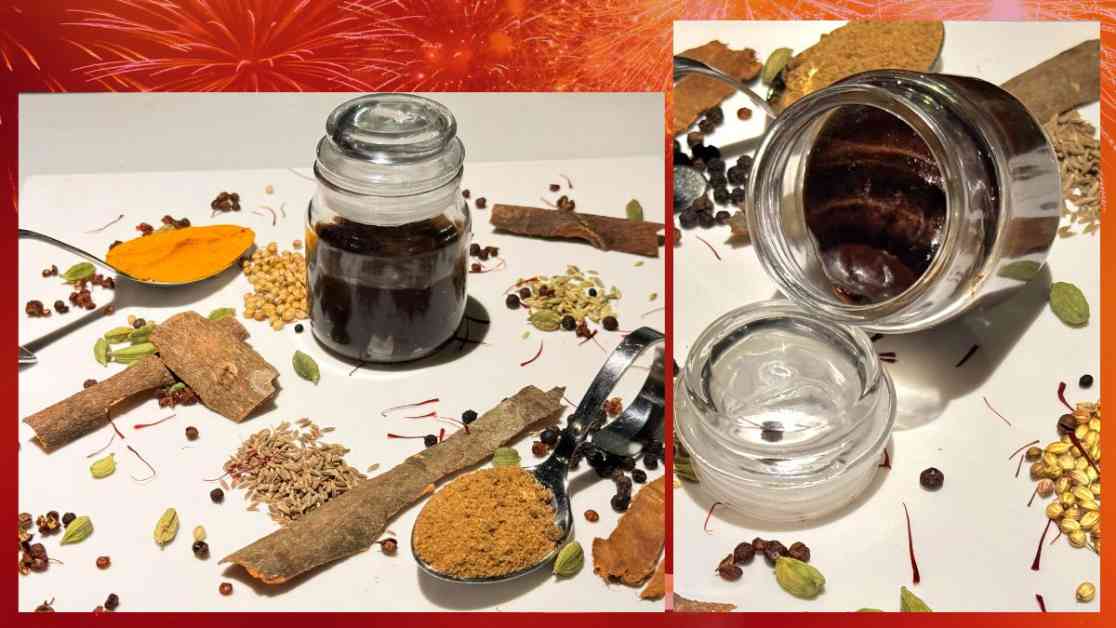The festival of Diwali, celebrated in India, is associated with delicious food, including sweets and savories. In Tamil Nadu, it is a tradition to consume Deepawali Marundhu, a herbal paste, on an empty stomach on Diwali morning. This paste, also known as legiyam, is made from a blend of spices such as dried ginger, ajwain, long pepper, and jaggery. It is believed to aid digestion and prepare the body for the rich foods consumed during the festival.
The preparation of Marundhu is rooted in the Ayurvedic principle of Agni, which focuses on digestion and metabolism. This herbal paste is considered an elixir for various stomach problems like indigestion, acidity, and acid reflux. Additionally, it is believed to boost metabolism and help build immunity as winter approaches. The ingredients used in Marundhu, such as ginger, pepper, and ajwain, are beneficial for balancing the body’s energies and promoting digestive health.
Every household has its own unique recipe for Marundhu, with variations in ingredients and sweeteners. Some families add herbs like licorice, plumbago zeylanica, and long pepper root to enhance the paste’s potency. Traditional sweeteners like palm jaggery and palm sugar are also used in place of regular jaggery for added flavor.
A recipe for making Marundhu at home includes dry roasting spices like dry ginger, black pepper, coriander seeds, cumin seeds, ajwain, cardamom, and long pepper. These roasted ingredients are ground into a fine powder and then combined with a jaggery syrup to create a paste-like consistency. Ghee and honey can be added for richness and cooling properties, respectively. The finished Marundhu can be stored in an airtight jar and lasts for several weeks when kept in a cool, dry place.
Consuming Marundhu on Diwali morning is a way to maintain balance and promote digestive health during a day of festive indulgence. This traditional practice reflects a holistic approach to well-being, ensuring that the body is prepared to handle the rich foods enjoyed during the festival. As families come together to celebrate Diwali, the tradition of consuming Marundhu continues to be passed down through generations, offering a taste of heritage and health benefits in every spoonful.














